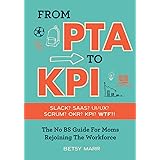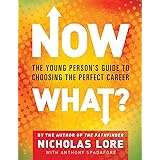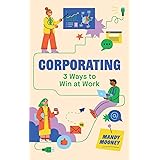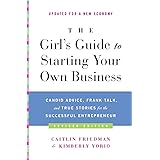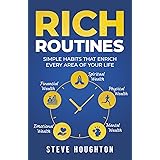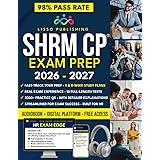Navigating a job interview can feel like walking a tightrope. Every question matters. One question often causes the most stress: “What is your weakness?” Many job seekers struggle with this. How can you share a flaw without jeopardizing your chances? The video above, presented by Shyam Sir, offers excellent initial guidance. It highlights the dilemma between being completely honest or overly diplomatic. However, we can expand on these crucial insights. This common interview question is not a trap. Instead, it is an opportunity. You can showcase your self-awareness and growth mindset.
Understanding the ‘What is Your Weakness?’ Interview Question
Interviewers ask about your weaknesses for specific reasons. They want to see your self-awareness. Do you understand your own limitations? Are you honest about areas needing improvement? Acknowledging a weakness shows maturity. Moreover, they look for growth potential. Are you proactive in addressing your flaws? Do you learn from your experiences? Companies seek employees who improve over time. They want candidates who can evolve. They also assess your problem-solving skills. How do you approach personal challenges? This reveals your resilience. It also shows your capacity for learning. Therefore, preparing for the “what is your weakness” interview question is vital.
Imagine if you denied having any weaknesses. This would signal a lack of introspection. It could make you seem arrogant. No one is perfect, after all. Conversely, simply stating a flaw without context is also unhelpful. It might make you appear unprepared. It could even highlight a potential liability. Your goal is to show a balance. You must be honest but also strategic. This approach builds trust with the interviewer. It demonstrates you are a thoughtful candidate. Mastering this common interview question is a key interview skill.
The Pitfalls of Unpreparedness
Many candidates make common mistakes. They might blurt out an unprepared answer. Some share a critical flaw. For instance, admitting to extreme laziness. Or confessing a tendency to miss deadlines. This immediately raises red flags for the interviewer. No company wants to hire an unreliable person. Such an answer rarely leads to a job offer. Instead, it creates doubt about your suitability.
However, another mistake is giving a “fake” weakness. This often sounds like a strength in disguise. Examples include “I’m a perfectionist.” Or “I work too hard.” These answers are transparent. Interviewers hear them constantly. They will likely see right through them. Such responses lack authenticity. They do not demonstrate genuine self-awareness. Your honesty is crucial here. The interviewer needs to believe you. Avoid these typical, unconvincing responses. Prepare a genuine yet positive answer instead.
Strategic Ways to Discuss Your Weakness
The video shares an excellent strategy. You acknowledge a past weakness. Then you describe how you worked to overcome it. This is the essence of a great answer. It transforms a negative into a positive. You show that you are adaptable. You prove you are committed to professional development. This approach turns a potential negative into a powerful narrative. It highlights your drive to improve.
Consider the structure for your answer. First, identify a specific weakness. Make sure it’s not a core job requirement. Second, explain the impact it once had. Briefly describe how it affected you. Third, detail the proactive steps you took. What did you do to address it? Fourth, mention your current status. Are you better now? Are you still improving? This structured approach works well. It provides a complete story. This shows you are reflective and action-oriented. Answering the “what is your weakness” interview question this way leaves a strong impression.
Crafting Your Response: Key Elements
Every effective answer needs specific components. These elements combine for impact. They help you demonstrate growth. They show your commitment to self-improvement. Use these steps to formulate your best response:
Acknowledge a Past Weakness
- Choose a specific, non-critical area. Avoid core job skills.
- Frame it as something you identified. Use phrases like “A few years back…” or “I used to struggle with…”
- Be honest but selective. It should be a real weakness.
Describe the Impact
- Briefly explain how this weakness affected you.
- What problems did it cause? How did it hinder your work?
- This provides context for your journey. It makes your story relatable.
Detail Steps Taken for Improvement
- This is the most critical part. Show your proactivity.
- Did you take a course? Read books? Seek mentorship?
- Mention specific actions you implemented. These actions prove your dedication.
Mention Ongoing Efforts or Lessons Learned
- Acknowledge that improvement is continuous.
- State you are “better than before.” Or “still working on it.”
- This shows humility and a growth mindset. It implies continuous professional development.
Common Weaknesses and How to Frame Them
Let’s explore some examples. The video mentioned several. We can expand on them. We will also add a few new ones. Remember to always apply the growth mindset strategy.
Communication Skills (English Proficiency)
As Shyam Sir discussed, many struggle with this. Imagine you are in this situation. You could say, “Sir, my English communication skills were a challenge. A few years ago, I found it hard to express myself clearly. This sometimes caused misunderstandings in group projects. However, I recognized its importance. So, I enrolled in an advanced English course. I also practiced daily through conversations. Now, my confidence has greatly improved. Yet, I actively seek opportunities to refine my articulation.” This response shows clear progress.
Multitasking
The video touched on managing multiple tasks. You could adapt it like this: “Initially, I struggled with multitasking effectively. I found it difficult to juggle several projects simultaneously. I realized this was impacting my productivity. So, I took steps to improve. I learned time management techniques. I started using project management tools. Now, I handle multiple responsibilities efficiently. I continue to refine my organizational strategies.” This highlights proactive skill development.
Impatience or Being Judgmental
The video mentioned impatience. You can frame it as: “Early in my career, I sometimes lacked patience. I would form opinions too quickly. I didn’t always listen fully before reacting. I saw how this affected team dynamics. I then sought advice from mentors. I focused on active listening exercises. Now, I approach situations with greater patience. I always strive to understand all perspectives before responding.” This demonstrates personal growth and maturity.
Perfectionism
This common trait can be a weakness. If unchecked, it can lead to delays. It can also cause burnout. You could say: “My perfectionism sometimes led to excessive time on details. I would spend too long refining small aspects. This occasionally delayed project completion. I learned to balance quality with efficiency. I now set clear deadlines for revisions. I also trust my team members more readily. This helps me deliver high-quality work on time.” This shows self-awareness and practical solutions.
Public Speaking
Fear of public speaking is very common. Many people face this challenge. You could express it as: “Presenting in front of large groups made me anxious. My voice would often waver. I realized this limited my ability to share ideas effectively. To overcome this, I joined a Toastmasters club. I practiced regularly, starting with smaller audiences. Now, I feel much more confident. I still prepare thoroughly for every presentation.” This example shows concrete action and measurable improvement.
Delegation
Managers sometimes struggle to delegate tasks. This can lead to overload. It can also hinder team development. Your answer could be: “As a team leader, I initially found delegating challenging. I preferred doing tasks myself to ensure quality. However, this often led to me feeling overwhelmed. I recognized the importance of empowering my team. I took a leadership workshop focused on delegation. I now effectively assign tasks. This has improved team efficiency and skill development.” This shows leadership growth.
Delivering Your Answer with Confidence
Having a well-crafted answer is just one part. How you deliver it also matters. Your body language speaks volumes. Maintain eye contact with the interviewer. Speak clearly and confidently. Show genuine sincerity. Your tone should be positive and forward-looking. Avoid sounding apologetic or defensive. Remember, you are showcasing growth. You are not dwelling on past failures.
Choose a weakness that is relevant. It should not be crucial for the job. Do not reveal something critical. For example, if the job requires strict deadlines, don’t say you struggle with time management. Unless, of course, you have a compelling story of overcoming it. Always connect your improvement to professional skills. This demonstrates your value to the company. Practice your answer aloud beforehand. This helps you sound natural. It also ensures smooth delivery. Preparing for the “what is your weakness” interview question gives you a significant advantage.



